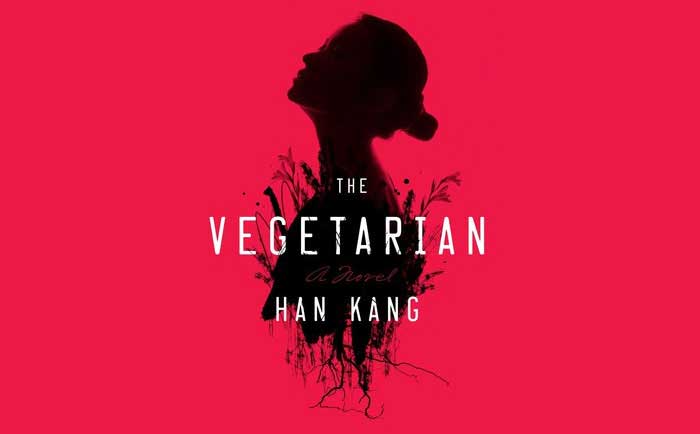South Korean writer Han Kang has become a sensation in South Korea with the publication of her books "The Vegetarian" and "Human Acts". Published back in 2007, "The Vegetarian" is a slim novel that tells the story of a woman named Yeong-hye who suddenly stops eating meat. This act enrages her family and symbolizes Yeong-hye's renunciation of humanity itself, which she sees as essentially violent. As she dives deeper into her obssession with cleansing her body from meat, it becomes clear that she's trying to emulate the peaceful life of a tree; she literally transform herself into a tree. As it can be expected, this book has been compared to Kafka's Metamorphosis at many levels.
"The Vegetarian" has earned praise beyond the borders of South Korea and has own the Man Booker International Prize, awarded every other year to novels from any country published in English (as it has been translated by Deborah Smith).
After the success of "The Vegetarian", Kang published another novel that also saw the light of day in English. The novel is "Human Acts" and is grounded more firmly in reality than "The Vegetarian" although it is just as inventive, intense and provocative.
"Human Acts" focuses on a tragic episode in South Korean history that saw student protesters being shot in the streets of the city of Gwangju in 1980, while others were captured and tortured by dictatorial government forces. Since the details of the tragedy were either censored or grievously downplayed by the government, many Koreans have only recently learned the full extent of the atrocities committed.
Considering the history of censorship, "Human Acts" is an outstanding work that requires considerable bravery. The subject matter is controversial in itself, and Kang's nonlinear, surrealistic treatment is a huge risk that ultimately gives the atrocities and the characters who endure them an emotional immediacy.
King's fascination with bodies is palpable from the beginning. A wretched 15-year-old boy named Dong-ho helps to wash and label fast-decomposing corpses in a municipal gymnasium in Gwangju. His main worry is his school friend, who we learn to be dead on the second chapter.
The following chapters skip forward to account for effects of the massacre on the survivors. The story also shows the perspective of a book editor who must contend with a government censor, as well as a former prisoner who is asked to reminiscence about his time in captivity, and lastly, a factory worker who lives with daily nightmares of her sufferings at the hands of Korean soldiers.
Kang's writing style serves to empower both stories. In "The Vegetarian," Kang's talent for grotesque description served the novel's psychosexual suspense and perverse entertainment value. In "Human Acts," it makes the atrocities of human-on-human violence extremely vivid.
But that's not the only bold narrative risk Kang takes. There's a chapter that is told from the point of view of a dead boy who body is trapped under a pile of other dead bodies: "When they threw a straw sack over the body of the man at the very top, the tower of bodies was transformed into the corpse of some enormous, fantastical beast, its dozens of legs splayed out beneath it." Thank goodness it's just her wild imagination a book.

